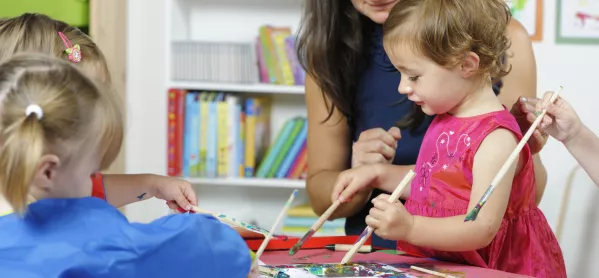This week saw the latest move in the cat and mouse game that the government and profession are playing over baseline assessment.
In February, primary heads were given a choice of six baseline assessments - all offering different ways of sizing up four-year-olds in the first few weeks of school. But each provider needed the backing at least 10 per cent of schools to pick them if they were to make it through to the final, sanctioned panel.
Now the results of those decisions have been made public. But it was not a decision that many headteachers wanted to make - after all, there had been a large and vocal opposition to the idea of testing four-year-olds in the first place. Even the government’s unexpected decision to make the assessments optional was not seen as any kind of compromise. As the results will be the only accepted way of measuring progress, opting out is only for the few schools confident that attainment alone will raise them above new, tougher floor targets. (Plus, for the cynics, making a test optional makes it far harder to boycott).
Three organisations: Early Excellence, the National Foundation for Educational Research and the Centre for Evaluation and Monitoring at Durham University, were given the thumbs up.
Three others, GL Assessment, Speech Link and Hodder Education, were told their assessments were no longer on the approved list.
To be clear, the rejected providers offered assessments which were trialled by schools, approved by government and could well have proved useful. They are respected organisations who are used to devising products which schools are happy to pay for.
They just misunderstood the question.
The question was not what kind of test do early years teachers want? To which the answer, could well be something quick, light-touch, with questions which allow as clear a judgement as possible. The kind of diagnostic assessment, in fact, that may well be used when there are concerns about children’s abilities.
This wasn’t about diagnosing difficulties. This was about a realistic assessment of a four or five-year-old which will be the (narrow) platform from which all progress is measured.
There is no-one in schools more clued-up on progress than a reception teacher: progress in reception is rocket-powered. Which means that “opportunity cost” becomes a major issue. The cost of that quick, light-touch test with as little judgement as possible, is the loss of the opportunity of interacting with the children as they settle into your class.
A four-year-old may think it is important to squidge up jelly and then put a note on the jelly table to explain to their classmates to BEEWEAR OF TH GELIE. If the child thinks it is important - to learn about solid, liquids, colour, writing as communication, phonic awareness and social norms - then so does the teacher. Which is why most have opted for an observation-based assessment which allows them time to do that.
And so this week, it seemed the game was over. With Early Excellence reporting that 11,000 schools chose its observation-based assessment and at least 3,000 signed up for the other two providers (the DfE will not release official numbers) it looks as if baseline assessments will go ahead.
But that may not be the end at all. Perhaps it is the case that the DfE felt so outmanouevered by the mass sign-up with Early Excellence that it prompted talk of replacing teacher assessment for seven-year-old with tests.
If you follow this logic to its natural conclusion, why have a reception baseline at all if KS1 sats are now the key assessment measure?
Certainly early years teachers would be happy. Because if you ask them, “What kind of test do early years’ teachers want for their pupils?” The answer is clear, they don’t want one at all.




